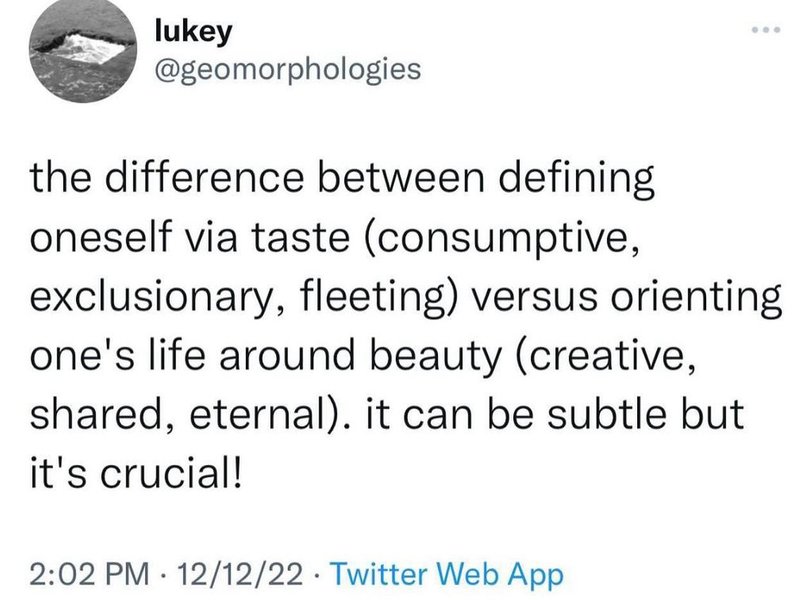values
If you try to find time for your most valued activities by first dealing with all the other important demands on your time, in the hope that there’ll be some left over at the end, you’ll be disappointed. So if a certain activity really matters to you – a creative project, say, though it could just as easily be nurturing a relationship, or activism
... See moreOliver Burkeman • Four Thousand Weeks
most important thing first and i decide what is important to me. not for others
By recognizing the higher-level consequences nature optimizes for, I've come to see that people who overweigh the first-order consequences of their decisions and ignore the effects of second- and subsequent-order consequences rarely reach their goals. This is because first-order consequences often have opposite desirabilities from second-order
... See moresecondary effect — longevity thinking
A lion is fully capable of capturing, killing, and eating a field mouse. But it turns out that the energy required to do so exceeds the caloric content of the mouse itself. So a lion that spent its day hunting and eating field mice would slowly starve to death. A lion can’t live on field mice. A lion needs antelope. Antelope are big animals. They
... See moreAlex Dobrenko` • Beautiful Disasters

“I have a theory that chasing things that scale makes you need therapy, and the therapy is pursuing things that can’t scale. I once wrote that every entrepreneur’s dream is to succeed at building an impossibly hard business and then finally open a local coffee shop to be happy.”
Notes on scale + quality
The faster you’re moving the more you’re in fear. The more you’re in fear, the more you’re thinking about yourself. The more you’re thinking about yourself, the less compassion and kindness you have for others.
from this Reel.
A sustainable business is strategically constrained. Its leaders know what the business is and, more importantly, what it's not.
Tara McMullin • Why Nachos Aren't on the Menu
“The meaning of life is to find your gift and the purpose of life is to give it away” – Shakespeare